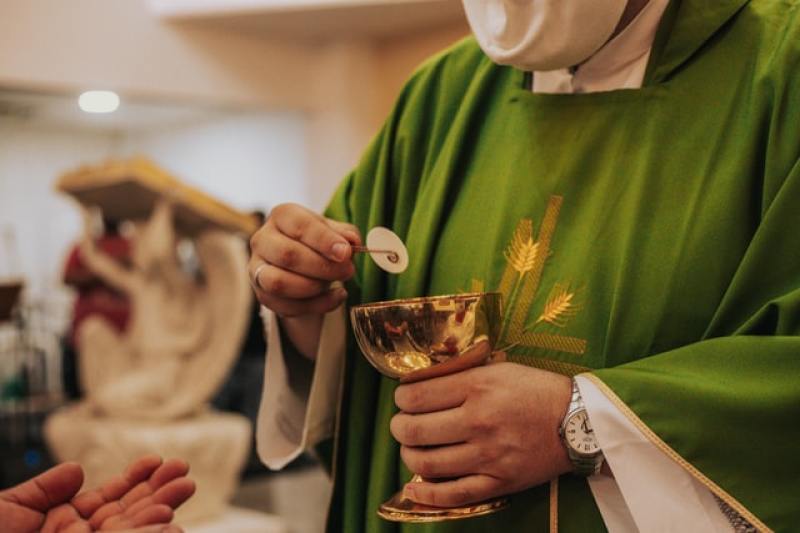
The United States Conference of Catholic Bishops has spoken against reports circulated by mainstream media that the document they are drafting bans pro-abortion politicians from receiving Holy Communion.
According to The Christian Post (CP), the USCCB has denied that the vote they cast during their recently concluded Spring General Assembly was to continue drafting a document that denies pro-abortion politicians from receiving communion.
Christianity Daily reported last week that despite reports from other media outlets purporting that the bishops voted 168-55 to "continue drafting a policy" on the worthiness of high-profile pro-abortion politicians, the bishops actually agreed in finishing a catechetical document "on the meaning of the Eucharist" as per their agenda published in their website.
"The full body of bishops also voted to task the Committee on Doctrine to move forward with the drafting of a formal statement on the meaning of the Eucharist in the life of the Church. Requiring a simple majority vote for approval, the action item passed with 168 votes in favor, 55 against, and 6 abstentions," the USCCB Spring Assembly Agenda read.
USCCB President Archbishop Jose Gomez even released a statement days after to clarify what the "document draft" on the Eucharist they agreed upon truly was.
"Last week, my brother bishops and I voted overwhelmingly to issue a teaching document on the beauty and power of the Eucharist. The doctrine committee of the bishops' conference will now begin drafting this document and, in the months ahead, the bishops will continue our prayer and discernment through a series of regional meetings and consultations," Gomez said in the statement.
CP added that Gomez' statement was followed by another publication, a question-and-answer document and another statement, which addresses the concerns on the vote that received much negative reaction from pro-abortion Catholic politicians and the general public who where misled by reports that the bishops were weaponizing the Eucharist. CP highlighted that the statement particularly denied the said allegations.
The USCCB dedicated a special section in their website entitled, "The Meaning Of The Eucharist In The Life Of The Church", to address the issue. The section contains a brief summary that directly responds to the issue.
"Since the conclusion of the Spring Plenary Assembly of the U.S. bishops last week, there has been much attention on the vote taken to draft a document on the Eucharist. The question of whether or not to deny any individual or groups Holy Communion was not on the ballot. The vote by the bishops last week tasked the U.S. Conference of Catholic Bishops' Committee on Doctrine to begin the drafting of a teaching document on the Eucharist," the summary pointed out.
"The document being drafted is not meant to be disciplinary in nature, nor is it targeted at any one individual or class of persons," it stressed.
The summary went on to explain the importance of the Eucharist being the "summit of Christian life" and reminded the need to live in accordance with the truth, goodness and beauty of the Eucharist we celebrate."
In addition to the summary, the special USCCB section on the Eucharist highlighted the statement of Gomez that clarified the bishop's assembly's vote on the Eucharist and the article on the Eucharist's centrality by Bishop Kevin C. Rhoades. This is followed by a subsection entitled, "Q&A on the U.S. Bishops' Vote to Draft a Document on the Meaning of the Eucharist in the Life of the Church."
The Q&A has four questions designed to help not only Catholics but anyone interested on the issue regarding the "document draft" into a better understanding on the matter. The said questions are: "Why the bishops doing this now?," "Did the bishops vote to ban politicians from receiving Holy Communion?," "Are the bishops going to issue a national policy on withholding Communion from politicians?," and "Did the Vatican tell the bishops not to move forward on drafting the document?"
The said questions were among those raised by those who read the reports purporting that the bishops were rebuking and targeting pro-abortion politicians, especially President Joe Biden.






















